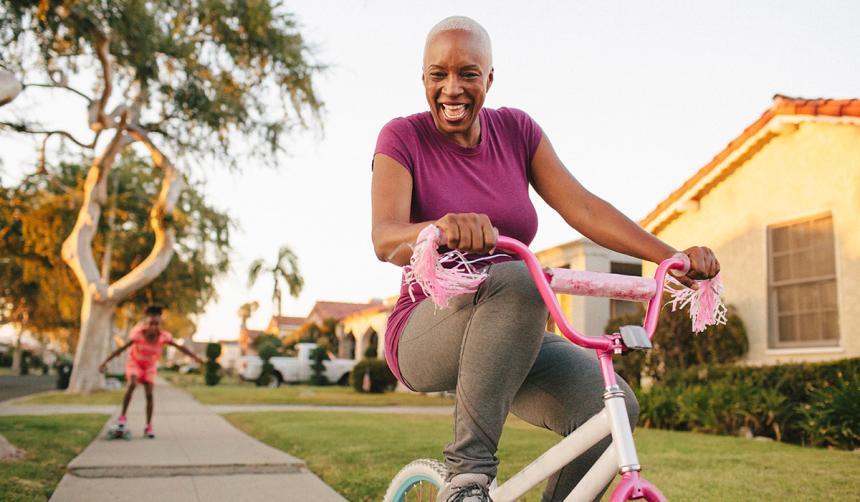Take These Steps in Your 40s, 50s and 60s to Improve Lifespan

The end of your life may seem far off in your 40s, even your 50s and 60s, but it’s never too soon to start healthy behaviors proven to add years to your life and your health span, the period of our life when we live mostly disease-free.
Extending your health span and lifespan requires a holistic approach encompassing diet, exercise, mental and social health, integrating positive behaviors and quitting those habits, which work against long life.
Here’s your guide for what you can do to extend your life in your 40s, 50s and 60s.
When you’re in your 40s …
Set a life-quality goal: Experts at End Well, a non-profit dedicated to creating a future where “ending well becomes a measure of living well,” believe that setting a goal for making positive lifestyle behavior is key to success. They suggest when we set a goal for our life, we should aim to live as healthy a life as possible versus just living a long life – quality over quantity. Start thinking about this as early as you can – write down your health span mission and revise it yearly to help keep your health habits on track.
Reduce stress, but don’t beat yourself up: You may be managing your teenage kids’ busy lives while juggling a job with responsibilities and taking care of an aging parent. Life is stressful, and stress puts us at risk for chronic diseases which reduce our health spans from diabetes and depression to heart disease.
But now is the time to assess your stress and take action. Make room to breathe, literally. Start a meditation, mindfulness or yoga practice you can commit to in your schedule. Make exercise, which can reduce the impact of stress, a priority. When it comes to stress, little changes can have a big impact.
When you’re in your 50s …
Cut back salt and sugar: It’s time to get serious about your diet. Salt and sugar the two white herrings of modern society which together can be catastrophic for maintaining health. Excessive Salt intake can increase your risk of chronic conditions including hypertension, cardiovascular disease, heart attack, stroke, kidney stones and renal failure. Sodium is a necessary nutrient required by the body, but in excess directly correlates to high blood pressure, which already tends to increase as we age.
Sugar is worse. It’s linked to diabetes, obesity, fatty liver disease and metabolic syndrome. These chronic conditions put us a higher risk for a shorter health span.
The solution? Use herbs and spices to flavor food instead. Stop eating restaurant food and highly processed foods, which are high in both salt and sugar. Replace sugary sodas with herbal teas or water.
It’s ok to indulge on special occasions but reducing excessive salt and sugar habits can add years to your life.
Prioritize bone health: We start to lose bone mass at 50. Our bone cells break down at a faster rate than new ones can form. If you don’t focus on skeletal strength, you risk of osteoporosis will increase and so will your risk for later-in-life falls and breaks and reduced mobility.
With your doctor’s guidance, start increasing calcium intake or taking supplements with vitamin D (needed for calcium absorption. Weight-bearing exercise is also key to bone health and strength. If you don’t already, get on your feet and walk, play pickle ball, golf or take a hike.
Pump up weight training: Strength training is key to keeping bones and muscles strong, especially for balance in your later years. Duke University research shows your 50s is when strength-related activities we take for granted, such as getting up from a chair or standing on one leg, start getting difficult.
To maintain muscle strength, work all major muscle groups: arms, legs, shoulder, back, abdomen and chest. (Always talk to your doctor before starting a new exercise program.) Use resistance bands, free weights or a weight machine; do squats, push-ups and planks.
When you’re in your 60s …
Boost your brain health: Your 60s is the time to boost your brain, which research shows remains capable of change, growth and making new neural connections throughout your lifetime. Research shows you can feel physically as well as mentally younger if you get out of your comfort zone. Start a new hobby. Join a book club or activity group. Learn a new language. Pursuing regular intellectual enrichment now increases your cognitive capacity for the future. Finally, maintain social interactions. They’re key to your brain and mental health as you age.
Stay sexually active: This one may surprise, but according to the National Poll on Healthy Aging, 50% aged 65-80 said sex is an important part of their quality of life, underscored by research finding that sexual activity is associated with greater enjoyment of life by older adults. Importantly, staying sexually active after 60 has ties to improved health. Studies link higher rates of sexual activity as we age with reduced rates of chronic illnesses including cardiovascular disease and cancer. Research also associates sexual activity with improved cognitive function in older age.
Whether in your 40s, 50s, 60s or beyond, partner with your doctor to focus on health behaviors you can implement to help enhance and expand your health span.
